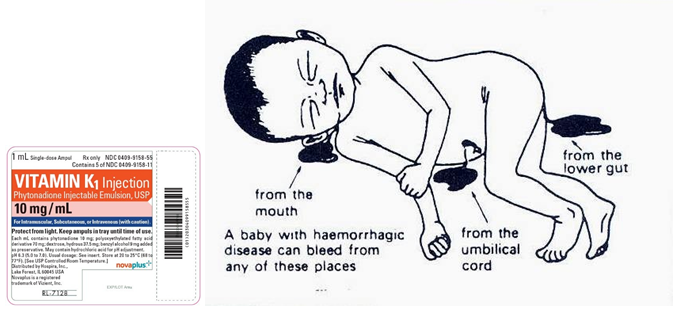A client with blood type AB negative delivers a newborn with blood type A positive. The cord blood reveals a positive indirect Coombs' test. What is the implication of this finding?
The newborn is infected with an infectious blood-borne disease.
The mother no longer needs Rho (D) immune globulin injections.
The mother's Rh antibodies are present in the neonatal serum.
The newborn needs phototherapy for physiologic jaundice.
The Correct Answer is C
A positive indirect Coombs' test indicates that the mother has developed Rh antibodies against the baby's Rh-positive blood. This finding can result in hemolytic disease of the newborn, which is a condition in which the mother's Rh antibodies atack the baby's red blood cells, causing destruction and potential anemia.
The baby may require phototherapy for physiologic jaundice, but the Coombs' test result indicates a different issue.
The presence of an infectious blood-borne disease cannot be determined from this test.
The mother may still need Rho (D) immune globulin injections after delivery of an Rh-positive baby.

Nursing Test Bank
Naxlex Comprehensive Predictor Exams
Related Questions
Correct Answer is C
Explanation
Limited abduction of the legs in a newborn can be a sign of developmental dysplasia of the hip (DDH), a condition in which the hip joint is not properly formed. The practical nurse (PN) should notify the healthcare provider of this finding so that further assessment and appropriate intervention can be initiated.
Performing range of motion to the joint (A) is not appropriate without a healthcare provider's order. Continuing care as if this is a normal finding (B) is not appropriate because limited abduction of the legs in a newborn can be a sign of DDH. While documenting the finding in the record (D) is important, notifying the healthcare provider is the most important action for the PN to take next.
Correct Answer is C
Explanation
Phyto menadione injectable, also known as vitamin K1, is commonly given to newborns to prevent hemorrhagic disease of the newborn (HDN), a bleeding disorder that can occur due to vitamin K deficiency in the first few days of life. Vitamin K is important for the production of clotting factors in the liver, and newborns are at risk of vitamin K deficiency because it does not cross the placenta well and their intestinal flora is not yet established. The other options do not accurately describe the purpose of administering Phyto menadione injectable to newborns.

Whether you are a student looking to ace your exams or a practicing nurse seeking to enhance your expertise , our nursing education contents will empower you with the confidence and competence to make a difference in the lives of patients and become a respected leader in the healthcare field.
Visit Naxlex, invest in your future and unlock endless possibilities with our unparalleled nursing education contents today
Report Wrong Answer on the Current Question
Do you disagree with the answer? If yes, what is your expected answer? Explain.
Kindly be descriptive with the issue you are facing.
